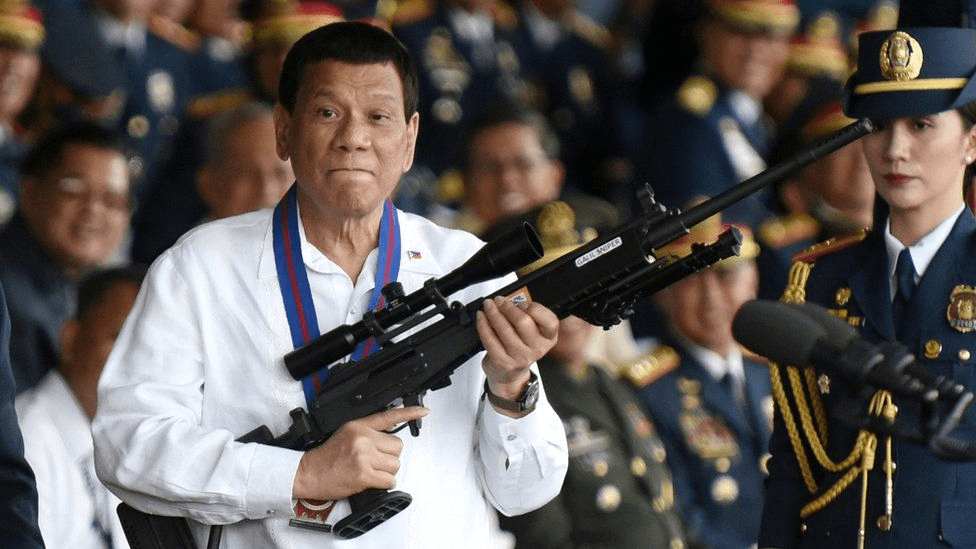
The Philippines’ president, Rodrigo Duterte, is a solid contender for the Worst Person Holding National Office award.
In 2016, he boasted that he rode his motorcycle under the city of Davao when he was mayor “looking for trouble… looking for a confrontation so I could kill.” “I killed about three men,” he said “Just to show to the guys [police] that if I can do it why can’t you.” He later welcomed a comparison to Hitler, saying “Hitler massacred three million Jews, now there is [sic] three million drug addicts. I’d be happy to slaughter them.” In his inauguration speech, Duterte told the nation that “If you know of any addicts, go ahead and kill them yourself.”
But next year, the Philippines will have a presidential election, and the Philippines limits presidents to a single six-year term. Defying his critic’s concerns, Duterte has not used his party’s super-majority to end term limits. Instead, he announced that he’s running on his party’s ticket as the vice president, a significantly less important role, which will keep him in office but seemingly out of power.
Filipino democracy seems secure, but is it?
Duterte might be stepping down from the presidency, but he’s following a path that many autocrats have before him: come to power through the legally-acknowledged route, then corrupt institutions so that you can maintain a veneer of democracy while turning the country into something less than free.
The tactic is so tried-and-true no region seems spared from it. Bolivia’s Evo Morales, a darling of the socialist Left, extended the president’s term from four years to five and served a third term despite the president being restricted to just two. In Kazakhstan, Nursultan Nazarbayev won the presidency in 1991 and manipulated term limits so he could remain president until 2019. And in Russia, Putin was barred from running for a third consecutive term in 2008, spent a term as prime minister, then took over the presidency again in 2012. If his constitutional reforms are ratified, Putin could remain in office until at least 2036, 37 years since he first took power.
While none of these countries were ever model democracies, their leaders’ tactics are a frightfully common occurrence. According to a study from the University of Virginia, about one-third of all presidents who reached the end of their term since 2000 made a serious attempt to overstay. Of those, two-thirds of them succeeded, and they did so largely through five easily replicable methods: making constitutional amendments, drafting a new constitution, using the courts to reinterpret the existing constitution, appointing a placeholder president that the real leader can control, and delaying elections. There’s a playbook for turning democratic rule into a perpetual autocracy, and Duterte seems to be following it.
Why do these leaders bother with democracy?
Though their actions don’t show reverence for democracy, autocrats want to retain an image of popular legitimacy. Democracy is so universally acknowledged to be the most just system of governance that these leaders have no choice but to project a mirage of free elections and the rule of law. More often than not, these leaders use the title “president,” first adopted during the American Revolution as a democratic alternative to the honorifics that other leaders used.
The unfortunate reality is that corrupted democratic institutions don’t just work as well for autocrats as an unabashed dictatorship, they work even better. When autocrats pose as democratically-elected officials, they can spare themselves from foreign sanctions and domestic protest movements that more overtly-oppressive regimes might suffer through. In the end, it’s much easier to be “President” than “Supreme Leader.”
In the case of the Philippines, no one but Rodrigo Duterte knows what he’s planning. But if there’s one thing we can assume, it’s that his farewell address next year won’t be the last that we hear of him.



